2020 Videos and Audio
The Monterey Summer Symposium on Russia (MSSR) is a component of the Graduate Initiative in Russian Studies (GIRS). The following are videos and audio from the MSSR 2020 program.
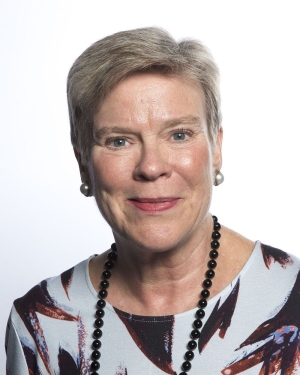
Keynote Address: Rose Gottemoeller
Rose Gottemoeller is a distinguished arms-control expert with decades of service in the US government—in the Departments of State and Energy as well as the National Security Council—Gottemoeller was also the chief US negotiator of the 2010 New Strategic Arms Reduction Treaty (New START), which was signed by Presidents Barack Obama and Dmitry Medvedev on April 8, 2010. Currently, Gottemoeller is a Payne distinguished lecturer at the Center for International Security and Cooperation and a research fellow at the Hoover Institution. She had served as NATO deputy secretary-general from October 2016–October 2019. For the five years prior, she served as undersecretary for arms control and international security at the US Department of State. Previously, she was a senior associate with the Carnegie Endowment for International Peace, with joint appointments to the Nonproliferation and Russia programs. She served as the Director of the Carnegie Moscow Center in 2006-2008. From 1998 to 2000, at the Department of Energy, she served as deputy undersecretary for defense nuclear nonproliferation and as assistant secretary and director for nonproliferation and national security, where she was responsible for all nonproliferation cooperation with Russia and the Newly Independent States. From 1993 to 1994, she served on the National Security Council staff as director for Russia, Ukraine, and Eurasia Affairs, with responsibility for nuclear threat reduction in Russia, Ukraine, Kazakhstan, and Belarus. Fluent in Russian, Gottemoeller has also worked at the International Institute for Strategic Studies in London, as a social scientist at the RAND Corporation, and as a Council on Foreign Relations international affairs fellow, and has taught on Soviet military policy and Russian security at Georgetown University.
In English
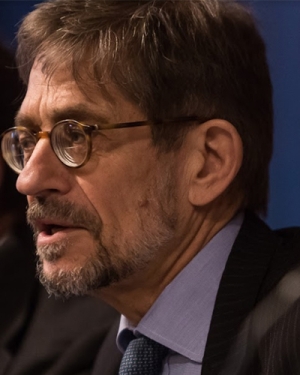
Keynote Address: Thomas Graham
Thomas Graham is a managing director at Kissinger Associates, Inc., where he focuses on Russian and Eurasian affairs. He was Special Assistant to the President and Senior Director for Russia on the National Security Council staff from 2004 to 2007 and Director for Russian Affairs on that staff from 2002 to 2004. From 2001 to 2002, he served as the Deputy Director of the Policy Planning Staff of the Department of State. From 1998 to 2001, Mr. Graham was a senior associate in the Russia/Eurasia program at the Carnegie Endowment for International Peace. From 1984 to 1998, he was a Foreign Service Officer. His assignments included two tours of duty at the U.S. Embassy in Moscow, where he served as head of the political/internal unit and acting political counselor. Between tours in Moscow, he worked on Russian and Soviet affairs on the Policy Planning Staff of the Department of State and as a policy assistant in the Office of the Undersecretary of Defense for Policy. Graham is one of the founders and co-Directors of the Russian Studies Project at Yale.
In English
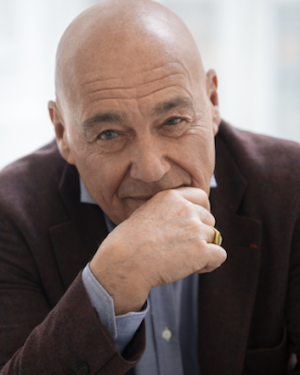
Keynote Address: Vladimir Pozner
Mr. Pozner is a veteran journalist, bestselling author, and documentary filmmaker. He is the host of the top-rated weekly current affairs program on Channel One, Russia’s largest television network. Named the “Voice of Moscow” by CNN, Pozner is a regular commentator on Russia and the history of the Cold War in Western media. Mr. Pozner has won multiple Soviet, Russian, and American awards, including three Emmy certificates, ten TEFY awards (the Russian equivalent of the Emmy) and several international awards. He is internationally recognized and ranks among the most respected people in the television profession in Russia today.
In English
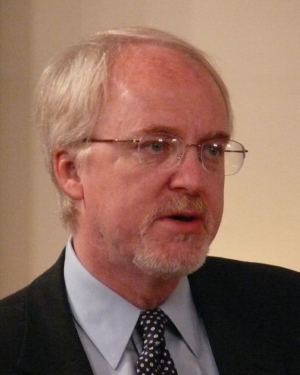
John Beyrle
John Beyrle is a career Foreign Service Officer and specialist in Russian and Eastern European affairs, he served as Ambassador of the United States to the Russian Federation from July 3, 2008, until January 10, 2012, and as Ambassador to Bulgaria from 2005 to 2008. Beyrle was Ambassador in Moscow during the “reset” of Russian-American relationship, which saw the signing of the New START arms control treaty, agreement on peaceful uses of nuclear energy, Russia’s accession to the World Trade Organization, and liberalized visa formalities for American and Russian travelers. He retired from the State Department in July 2012 with the rank of Career Minister, the diplomatic equivalent of a three-star general. He serves on the Board of Directors of several non-profit foundations, including as Chairman of the U.S. Russia Foundation, and as an adviser and business consultant on Central and Eastern Europe, Russia, and other countries of the former Soviet Union.
In English
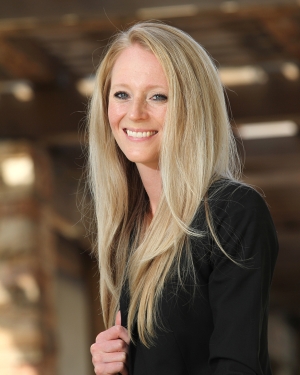
Sarah Bidgood
Sarah Bidgood is the director of the Eurasia Nonproliferation Program at the James Martin Center for Nonproliferation Studies in Monterey, California. Her research focuses on US-Soviet and US-Russia nonproliferation cooperation, as well as the international nonproliferation regime more broadly. She is the co-editor of the book Once and Future Partners: The United States, Russia, and Nuclear Non-Proliferation which was published by the International Institute for Strategic Studies in 2018. She also leads the Young Women in Nonproliferation Initiative at CNS. Previously, Sarah was a graduate research assistant at CNS and the project manager for the Graduate Initiative in Russian Studies. Sarah is a member of the CTBTO Youth Group, and she served as an intern at the UN Office for Disarmament Affairs during the 2015 NPT Review Conference. Before coming to Monterey, she worked in the field of scientific publishing as a managing editor and peer review manager. Sarah earned her BA in Russian from Wellesley College. She also holds an MA in Russian, East European, and Eurasian Studies from the University of North Carolina at Chapel Hill and an MA in Nonproliferation and Terrorism Studies from the Middlebury Institute of International Studies.
In English
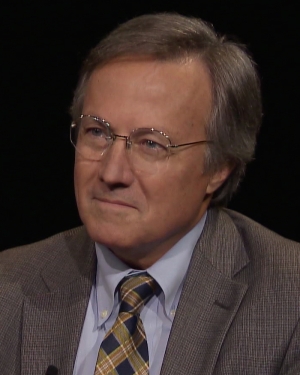
Thomas Blanton
Thomas Blanton is the director (since 1992) of the independent non-governmental National Security Archive at George Washington University (www.nsarchive.org), which won the George Polk Award in 2000 for “piercing self-serving veils of government secrecy.” Under Blanton’s direction, the Archive has organized and led multinational documentary investigations and high-level “critical oral history” conferences on the East German workers’ uprising of 1953 (Potsdam 1993), the Prague Spring 1968 (Prague 1994), the Hungarian revolution of 1956 (Budapest 1996), Polish martial law 1981 (1997 Warsaw), the Bay of Pigs invasion (1996 and 2001 Havana), the Cuban Missile Crisis (1992 and 2002 Havana), the new Cold War history (2000 Moscow), the end of the Cold War (1999 Georgia, Prague, Budapest, Warsaw), the Rwanda and Srebrenica genocides (The Hague 2014 and 2015), the denuclearization of Kazakhstan (Semipalatinsk 2015), Ukraine and nuclear weapons (Siena 2019), and seven summer schools for young Russian faculty at regional universities in cooperation with Kuban State, Voronezh State, and Saratov State universities. Educated at Harvard University, Blanton is series editor for the National Security Archive’s online and book publications of more than a million pages of declassified U.S. government documents obtained through the Archive’s more than 60,000 Freedom of Information Act requests. His articles have appeared in Diplomatic History, Foreign Policy, Wilson Quarterly, The New York Times, and The Washington Post, among many others. Together with Dr. Svetlana Savranskaya, he has published more than four dozen electronic briefing books of declassified documents on Soviet dissidents, U.S.-Soviet and U.S.-Russian relations, NATO expansion, and the Nunn-Lugar program, among other timely topics, and two books with Central European University Press: The Last Superpower Summits: Gorbachev, Reagan, and Bush (2016) which Choice Magazine named an “Outstanding Academic Title 2017”; and Masterpieces of History: The Peaceful End of the Cold War in Europe, 1989 (2010), which won the Link-Kuehl Prize in 2011 from the Society for Historians of American Foreign Relations. His other books include The Chronology (New York: Warner Books, 1987), on the Iran-contra scandal, and White House E-Mail (New York: New Press, 1995) on the Archive’s landmark lawsuit that saved over 220 million records from Reagan through Obama. His honors include the Emmy Award (2004) for individual achievement in news and documentary research, and the Newcomen Prize in history from Harvard (1979).
In English
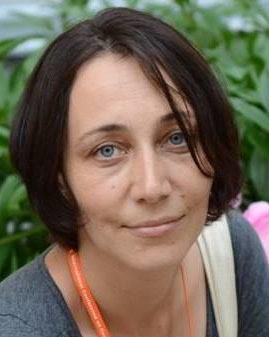
Anastasia Bonch-Osmolovskaya
Anastasia Bonch-Osmolovskaya is an associate professor of the Philological Department, academic director of MA programs in Computational Linguistics, and head of the Digital Humanities Group in the Faculty of the Humanities at the National Research University a Higher School of Economics (HSE) in Moscow, Russia. Prior to joining the faculty at HSE, she worked as a linguistics expert and consultant for private-sector R&D companies including AviComp Services, RCO, and ROSNANO. Her research has been published in both English and Russian. Professor Bonch-Osmolovskaya holds a Master’s in theoretical and computational linguistics from Moscow State University Lomonosov. She also received a Ph.D. in linguistics from Moscow State University Lomonosov in 2003.
In Russian
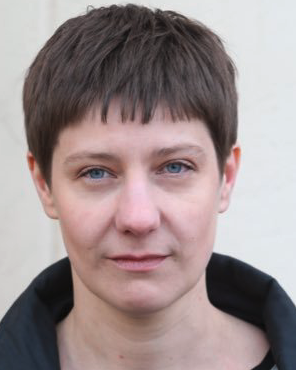
Irina Borogan
Irina Borogan is a Russian investigative journalist, co-founder and deputy editor of Agentura.ru, a watchdog of the Russian secret services’ activities. She chronicled the Kremlin’s campaign to gain control of civil society and strengthen the government’s police services under the pretext of fighting extremism. She is co-author with Andrei Soldatov of The New Nobility: The Restoration of Russia’s Security State and the Enduring Legacy of the KGB (PublicAffairs, 2010), The Red Web: The Struggle Between Russia’s Digital Dictators and the New Online Revolutionaries (PublicAffairs, 2015) and The Compatriots: The Brutal and Chaotic History of Russia’s Exiles, Émigrés, and Agents Abroad (PublicAffairs, 2019).
In Russian
- Неуловимые доллары: Как Советские и Российские банкиры обходили финансовый контроль США | Untraceable Commodities: How Soviet and Russian Bankers Bypassed U.S. Banking Oversight (July 9)
video | audio - Соотечественники: Как Москва и Вашингтон пытались использовать политическую эмиграцию из России | The Compatriots: The History of the U.S. and Moscow’s Approach to the Russian Political Emigration in the United States (July 10)
video | audio - Кремлевские войны в интернете: Что ждать от рунета после 2020 года | The Kremlin’s Wars on the Internet: What to Expect in the Post-2020 World (July 10)
video | audio
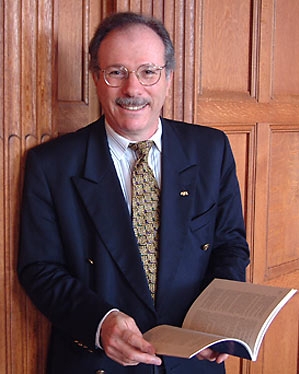
George Breslauer
George W. Breslauer is a social scientist and specialist on Soviet and Russian politics and foreign relations. He received his Ph.D. in political science at the University of Michigan and has been on the political science faculty at UC Berkeley since 1971. George served as chair of the Center for Slavic and East European Studies (1984-1994), chair of the Department of Political Science (1993-1996), dean of the social sciences (1999-2006), and executive vice chancellor and provost (2006-2014) of UC Berkeley. He was awarded a distinguished teaching award in 1997 and a Chancellor’s Professorship in 1998 for combining highly distinguished achievement in teaching, research, and service. In 2014, he was elected a Fellow of the American Academy of Arts and Sciences. He is the author of six books on Soviet and Communist politics, including Khrushchev and Brezhnev as Leaders: Building Authority in Soviet Politics (1982) and Gorbachev and Yeltsin as Leaders (2002). The latter book is currently being translated into Russian by Academic Studies Press for marketing in Russia and the Russophone FSU. George currently has a book manuscript under review for publication, entitled The Rise and Demise of World Communism.
In English
- U.S.-Russian Relations: Policy Formation and Expertise (June 23)
video | audio - An Intellectual History of Sovietology (July 13)
video | audio - Similarities and Differences Among the 16 Communist States Over Time (July 14)
video | audio - Communist States: Their Relationship With Each Other and the United States (July 15)
video | audio
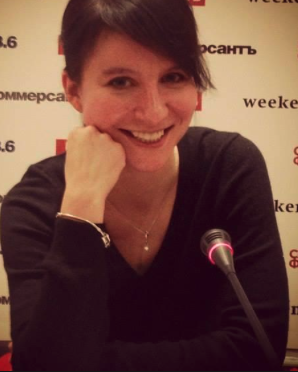
Elena Chernenko
Dr. Elena Chernenko is a special correspondent at the Kommersant daily newspaper in Moscow, Russia, where she likes to focus on issues of cybersecurity and arms control. She has previously worked for Russian Newsweek, the Voice of Russia, the Moskauer Deutsche Zeitung newspaper and the EurActiv news agency. She holds a Ph.D. in history from Moscow State University. Member of the Board of the Council on Foreign and Defense Relations and the Council of the PIR-Center.
In Russian
- США и Россия в киберпространстве: Перспективное начало двусторонних и международных отношений | U.S. and Russia in Cyber Space: A Promising Start Bilaterally and Internationally (July 9)
video | audio - США и Россия в киберпространстве: От сотрудничества к конфронтации | U.S. and Russia in Cyber Space: From Cooperation to Confrontation (July 10)
video | audio - США и Россия в киберпространстве: Общие угрозы и подходы – причины для компромисса? | U.S. and Russia in Cyber Space: Common Threats and Approaches – Chances for a Compromise? (July 10)
video | audio
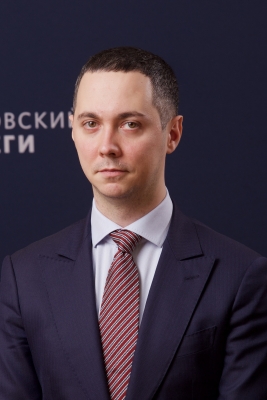
Alexander Gabuev
Alexander Gabuev is a senior fellow and the chair of the Russia in the Asia-Pacific Program at the Carnegie Moscow Center. His research is focused on Russia’s policy toward East and Southeast Asia, political and ideological trends in China, and China’s relations with its neighbors—especially those in Central Asia. Prior to joining Carnegie, Gabuev was a member of the editorial board of Kommersant publishing house and served as deputy editor in chief of Kommersant-Vlast, one of Russia’s most influential newsweeklies. Gabuev started his career at Kommersant in 2007 working as a senior diplomatic reporter, as a member of then-president Dmitry Medvedev’s press corps, and as deputy foreign editor for Kommersant. His reporting covered Russia’s relations with Asian powers and the connection between Russian business interests and foreign policy. Gabuev has previously worked as a nonresident visiting research fellow at the European Council on Foreign Relations (ECFR) and taught courses on Chinese energy policy and political culture at Moscow State University. In April-June 2018, Gabuev was a visiting scholar at Fudan University (Shanghai, China), and was teaching courses on Sino-Russian relations. Gabuev is a Munich Young Leader of Munich International Security Conference and a member of the Council on Foreign and Defense Policy (Russia).
In Russian
- Не всегда друг с другом, никогда против друг друга: Главные стимулы китайско-российские отношения | Not Always With Each Other, Never Against Each Other: Key Drivers of China-Russia Relations (July 2)
video | audio - Заболел вирусом? Влияние коронавируса на отношения России и Китая | Catching the Virus?: Impact of COVID-19 on China-Russia Ties (July 2)
video | audio
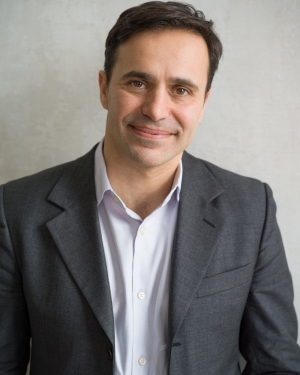
Keith Gessen
Keith Gessen is a Russian-born American novelist, journalist, literary translator, contributor to The New Yorker and The London Review of Books, founding editor of n+1, a thrice-yearly magazine of literature, politics, and culture based in New York City. He is also an assistant professor of journalism at the Columbia University Graduate School of Journalism. He is the editor of three nonfiction books and the translator or co-translator, from Russian, of a collection of short stories, a book of poems, and a work of oral history. He is also the author of a novel, All the Sad Young Literary Men. Most of Gessen’s journalistic work has focused on the effects of the collapse of communism on the countries of what used to be the Soviet Union. Most recently he has been writing on the post-revolutionary crisis in Ukraine, both from the perspective of the hopeful (pro-European) western and central portions of the country, and its traumatized (pro-Russian) east. Gessen began his career as a book reviewer for the early online magazine FEED and subsequently contributed review-essays to Dissent, The Nation, and The New York Review of Books. Gessen graduated from Harvard with a B.A. in History and Literature in 1998 and subsequently received an M.F.A. in Creative Writing (Fiction) from Syracuse University. In 2014-2015 he was a Fellow at the Cullman Center for Writers and Scholars at the New York Public Library.
In English
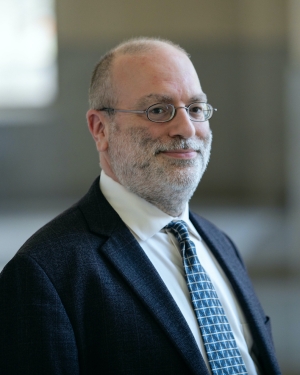
Michael Gordin
Michael Gordin is a science historian and Slavist. Michael Gordin specializes in the history of the modern physical sciences and Russian, European, and American history. He came to Princeton in 2003 after earning his A.B. (1996) and his Ph.D. (2001) from Harvard University, and serving a term at the Harvard Society of Fellows. He has published articles on a variety of topics, such as the introduction of science into Russia in the early 18th century, the history of biological warfare in the late Soviet period, the relations between Russian literature and science, as well as a series of studies on the life and chemistry of Dmitri I. Mendeleev, formulator of the periodic system of chemical elements. Professor Gordin is currently working on a brief study of the concept of pseudoscience, and a history of the impact of the collapse of the Soviet Union on science inside and outside of Russia. He maintains an abiding interest in the history of constructed languages.
In English
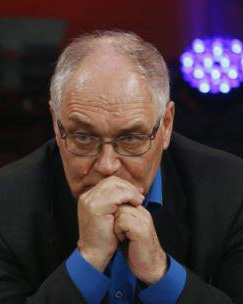
Lev Gudkov
Born in 1946, Moscow, Prof. Dr. Gudkov studied journalism, sociology, and philology at Moscow State University. He completed his Post-graduate degree at the Institute for Philosophy of the USSR Academy of Sciences in 1977and completed his dissertation, “Candidate of the Philosophical Sciences” in 1979, and became a Doctor of Philosophy in 1995. Prof. Gudkov has worked at various institutions of the USSR Academy of Sciences since 1970. He has been a researcher in The Russian Centre for Public Opinion Research (VCIOM), Head of Department of Social and Political Studies since 1988. Levada Analytical Center (Levada-Center), Head of Department of Social and Political Studies, 2003-2006. Prof. Gudkov has been the Director of Levada Center since 2006. He is also the Editor-in-Chief of the magazine “Russian Public Opinion Herald” and is a lecturer at The Higher School of Economics.
In Russian
- Судьба «советского человека»: сквозь все режимы | The Fate of “Homo Sovieticus” Throughout the Regimes (July 17)
video | audio - Социально-политическая ситуация в России: от крымской мобилизации к пандемии и кризису авторитарного режима | The Socio-Political Situation in Russia: From Force Mobilization in Crimea to the Pandemic and the Crisis of an Authoritarian Regime (July 17)
video | audio
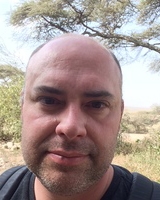
Sean Guillory
Sean Guillory earned his Ph.D. from UCLA in 2009 in Modern Russian History. He is the Digital Scholarship Curator in the Center for Russian, East European, and Eurasian Studies at the University of Pittsburgh. Sean Guillory is the host of the SRB Podcast, a weekly podcast on Eurasian politics, history, and culture.
In English
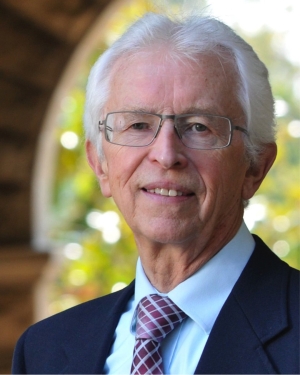
Siegfried Hecker
Siegfried S. Hecker is a professor (research) in the Department of Management Science and Engineering and a senior fellow at the Freeman Spogli Institute for International Studies (FSI) at Stanford University. He was co-director of CISAC from 2007-2012. From 1986 to 1997, Dr. Hecker served as the fifth Director of the Los Alamos National Laboratory. Dr. Hecker is an internationally recognized expert in plutonium science, global threat reduction, and nuclear security. Dr. Hecker joined Los Alamos National Laboratory as a graduate research assistant and postdoctoral fellow before returning as technical staff member following a tenure at General Motors Research. He led the laboratory’s Materials Science and Technology Division and Center for Materials Science before serving as laboratory director from 1986 through 1997, and senior fellow until July 2005. Dr. Hecker’s research interests include plutonium science, nuclear weapons policy, nuclear security, and the safe and secure expansion of nuclear energy. Dr. Hecker has visited North Korea frequently in an unofficial capacity to assess the plutonium program at the Yongbyon Nuclear Scientific Research Center. Over the past 20 years, he has fostered cooperation with the Russian nuclear laboratories to secure and safeguard the vast stockpile of ex-Soviet fissile materials. Dr. Hecker’s research projects at CISAC focus on reducing the risks of nuclear terrorism worldwide and the challenges of nuclear India, North Korea, Pakistan, and the nuclear aspirations of Iran. Dr. Hecker has also published a two-volume book on the history of Russian-U.S. laboratory-to-laboratory cooperation since 1992.
In English
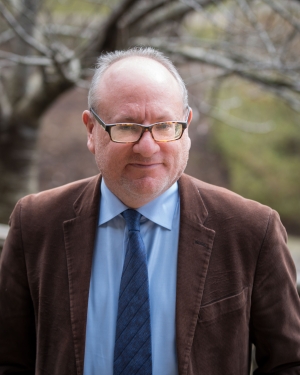
Michael Kimmage
Michael Kimmage is a professor of history at the Catholic University of America. From 2014 to 2017 he served in the Secretary’s Office of Policy Planning where he held the Russia/Ukraine portfolio. His latest book was published in April 2020 with Basic Books and is entitled The Abandonment of the West: the History of an Idea in American Foreign Policy. Michael Kimmage specializes in the history of the Cold War, in twentieth-century U.S. diplomatic and intellectual history and in the U.S.-Russian relations since 1991. From 2014 to 2016, he served on the Secretary’s Policy Planning Staff at the U.S. Department of State, where he held the Russia/Ukraine portfolio. Professor Kimmage has published four books to date: The Conservative Turn: Lionel Trilling, Whittaker Chambers and the Lessons of Anti-Communism (Harvard University Press, 2009); In History’s Grip: Philip Roth’s Newark Trilogy (Stanford University Press, 2012); Wolfgang Koeppen’s Journey Through America (Berghahn, 2012), a German-language travelogue published in 1959 and translated by Professor Kimmage; and The Abandonment of the West: the History of an Idea in American Foreign Policy (Basic Books, 2020). Professor Kimmage has written articles and book reviews for the New York Times, Washington Post, New Republic, Frankfurter Allgemeine Zeitung, Jewish Review of Books, and Los Angeles Review of Books. He has been a visiting professor at the Ludwig Maximilian University in Munich and at Vilnius University in Lithuania.
In English
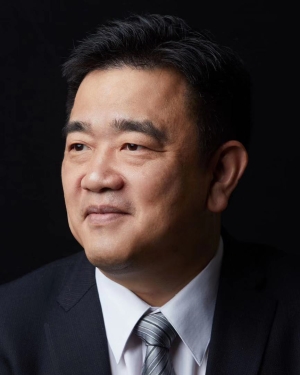
Ben Koo
Ben Koo is the Director of the International Relations iCenter of Tsinghua University in Beijing. Prof. Koo is one of the founders of iCenter@Tsinghua, a school-in-school experiment at Tsinghua University, Beijing, where he serves as the Director of International Relations of iCenter. He works on the design and deployment strategies of digital learning infrastructures for individuals and institutions. He created a collective-learning methodology: Extreme Learning Process (XLP), which is being practiced at many levels of educational institutions in China. Based on XLP, Prof. Koo co-created an associate degree program at Tsinghua: “Minor in Technology Innovation and Entrepreneurship”, that covers all disciplinary domains at this general-purpose university, and aims at using the experience as a basis to inform and reform higher education practices in China. Prof. Koo’s research interest is related to knowledge management in general. He earned a doctoral degree in Engineering Systems Division, and a master’s degree in System Design and Management, both from MIT. He also had a master’s degree in Industrial Engineering and Operations Research, and a bachelor’s degree in Mechanical Engineering, both from the University of Minnesota.
In English
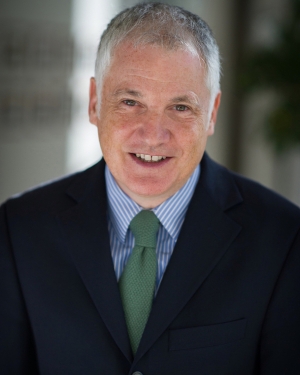
Stephen Kotkin
Stephen Mark Kotkin is an American historian, academic, and author. He is currently a professor in history and international affairs at Princeton University and a fellow at Stanford University’s Hoover Institution. Professor Kotkin has been teaching in the department since 1989. Professor Kotkin established the Princeton department’s Global History initiative and workshop and has taught the graduate seminar on global history since the 1850s. He served on the core editorial committee of the World Politics, flagship journal in comparative politics. He founded and co-edited a book series on Northeast Asia that published six volumes. From 2003 until 2007, he was a member and then chair of the editorial board at Princeton University Press. From 1996 until 2009 he directed Princeton’s Program in Russian and Eurasian Studies. He has been the vice dean of the Woodrow Wilson School and acting director of the Princeton Institute for International and Regional Studies (PIIRS). In 2014-15 he served as acting director of what is now Russian, East European, and Eurasian studies. Outside Princeton, from 2006 (until taking a break in February 2009) he was the regular book reviewer for the New York Times Sunday Business section. His latest book is Stalin: Waiting for Hitler, 1929-1941 (Penguin, 2017). His research interests include authoritarianism, geopolitics, global political economy, empire, and modernism in the arts and politics.
In English
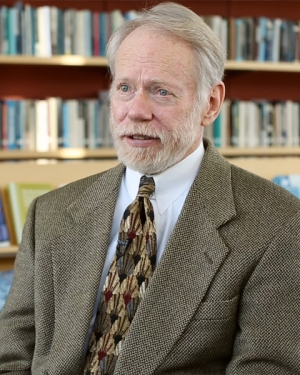
Robert Legvold
Dr. Legvold is Marshall D. Shulman Professor Emeritus in the Department of Political Science at Columbia University, where he specialized in the international relations of the post-Soviet states. He was Director of the Harriman Institute, Columbia University, from 1986 to 1992. Dr. Legvold’s areas of particular interest are the foreign policies of Russia, Ukraine, and the other new states of the former Soviet Union, U.S. relations with the post-Soviet states, and the impact of the post-Soviet region on the international politics of Asia and Europe. He is currently co-director of the American Academy of Arts and Sciences project, “Meeting the Challenges of a New Nuclear Age,” and co-director of the joint Moscow State University (MSU)-Moscow State Institute of International Relations (MGIMO) MA program, “Public Policy in the Post-Soviet Space.” His most recent book is Return to Cold War (Polity, 2016). He is a fellow of the American Academy of Arts and Sciences and a foreign member of the Russian Academy of Social Sciences.
In English
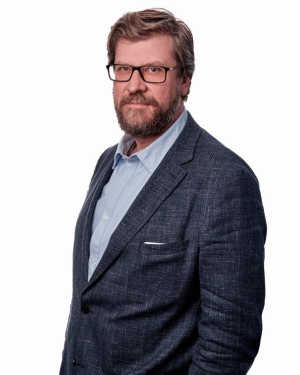
Fyodor Lukyanov
Fyodor Lukyanov is the Chairman of Council on Foreign and Defense Policy, the oldest Russian NGO providing expertise in the foreign policy field, editor-in-chief of Russia in Global Affairs journal published in Russian and English with participation of Foreign Affairs. As head of Russia in Global Affairs since its founding in 2002, he greatly contributed to making this journal Russia’s most authoritative source of expert opinion on global development issues. He is also a research director at the International Valdai discussion club, a member of the Presidium of the Russian International Affairs Council (RIAC). Fyodor Lukyanov is a research professor at the Higher School of Economics in Moscow. Mr. Lukyanov worked as a correspondent, commentator, and editor for numerous Russian printed and electronic media. Now he is one of the most known commentators of Russian foreign policy worldwide. In 2011 he received an award of the Russian government for his contribution to international journalism. Previous positions: editor, then senior editor, Department for Broadcasting to Northern Europe, International Radio Moscow (Voice of Russia, 1990–1993); correspondent, international desk, Segodnya newspaper (1994–1997); editor, international desk, Vremya MN newspaper (1997–2000); editor, international desk and deputy Editor-in-Chief of Vremya Novostei newspaper (2000–2002). He graduated from Moscow State University 1991 with a degree in German language and literature.
In Russian
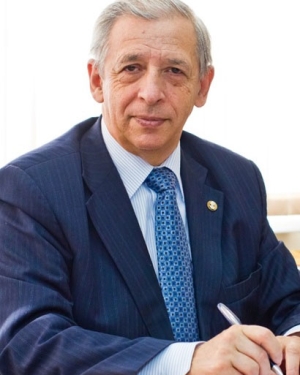
Pavel Minakir
Dr. Pavel Minakir has been an Academician of the Russian Academy of Sciences since 1972. After graduating from Moscow State University, he has lived and worked in Khabarovsk in the Russian Far Eastern Federal District. From 1991 to 2006, he headed the Institute of Economic Research of the Russian Academy of Sciences, a premier economic think tank in Russia and Asia-Pacific countries. He is now President Emeritus of the institute. Pavel Minakir is the leading Russian expert in economics and the economic interaction of the Russian Far East, Russian regions, and Northeast Asian countries. His focus is on the domestic Russian economy and economic relations of Russia and its various regions, particularly the Far East, along with experimental and theoretical research on spatial economics. He has published a number of seminal works in these fields in Russian, English, French, Japanese, and Chinese. His publications include: “Regional Economic Development: Program Approach” (1983), “Soviet-American Economic Ties on the Pacific” (1984), “L’économie de l’Extrême-Orient soviétique au tournant du siècle” (1987), “Soviet-Japanese Economic Ties in the New Pacific Era” (1990), “Russian Far East: Economic Review” (1994), “System Transformation in Economy” (2001), “Region’s Economics: Russian Far East” (2006), “Regional Economic Dynamics” (2010), “Pacific Russia-2050” (2011), “Essays on Spatial Economics” (2014), “The Russian Far East on the Way of Future” (2017). He is the chief editor of the scientific journal “Spatial Economics” and a member of the editorial boards of a number of economics journals (Zhurnal Novoy Ekonomicheskoy Assosiatsii [Journal of the New Economics Association], Ekonomika Regiona [Economy of the Region], Region: Ekonomika i Sotsiologiya [Region: Economy and Sociology], Problemy Dalnego Vostoka [Problems of the Far East], Yevropeysky Ekonomichesky Zhurnal [European Economic Journal, etc.]).
In Russian
- Экономика России: Системный кризис вместо возрождения | The Russian Economy: More Systemic Crisis Than Renaissance (July 20)
video | audio - Российский Дальний Восток и Северо-Восточная Азия: Обещать не значит жениться | The Russian Far East and Northeast Asia: Dating for a Long Time Doesn’t Mean You’re Getting Married (July 20)
video | audio

Hanna Notte
Hanna Notte is a Senior Political Officer with The Shaikh Group, a non-profit consultancy focused on Track II diplomacy and conflict mediation in the Middle East. She supports the organization’s engagement with Russia related to the “Syria Track II Dialogue Initiative”, and also works on other Track II dialogues related to the broader region. Hanna holds a DPhil in International Relations from the University of Oxford (St. Antony’s College), from where she also received an MPhil in 2014. She spent a year between 2015-2016 in Moscow on an ‘Alfa Fellowship’ with the Institute of Oriental Studies and the Carnegie Moscow Center. Other visiting research positions have included the IISS’ Middle East office in Manama, Bahrain, and the Konrad-Adenauer-Foundation’s Syria/Iraq office in Beirut, Lebanon. Hanna holds a BA in Social and Political Sciences from the University of Cambridge and worked at Goldman Sachs’ London offices as a strategic equity analyst from 2010-2012. Her research interests focus on Russian foreign policy in the Middle East, WMD arms control and nonproliferation in the Middle East, and US-Russian relations. She has lectured on Russian foreign policy in the Middle East, including at the Higher School of Economics in Moscow, the American University of Paris, and the Middlebury Institute of International Studies at Monterey, and is regularly invited to speak at international events and conferences on the subject. Hanna is a non-resident scholar with the James Martin Center for Nonproliferation Studies (CNS). She is a German national who speaks Russian, Arabic, and French.
In English
- Russia and Middle East Conflicts – The Case of Syria, and Broader Lessons (July 1)
video | audio - Russia and Middle East Interests: Profit, Prestige and Power Projection (July 2)
video | audio - Russia and Middle East Arms Control: How Moscow Approaches Non-Proliferation in the Region (July 2)
video | audio
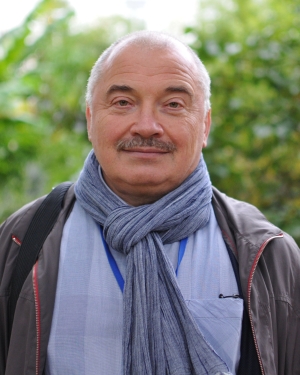
Nikolay Petrov
Nikolai Petrov is a professor at the politics and management department, National Research University Higher School of Economics, Moscow; and currently senior research fellow at the Chatham House, Russia and Eurasia program. He holds a Ph.D. in geography from Moscow State University, 1982. For many years he was a scholar in residence at the Carnegie Moscow Center, where he directed the Society and Regions project. He also heads the Center for Political-Geographic Research. In 2005-2006 he served as Academic Director, Institute for Regional Politics, Moscow, Russia; and in 2000-2002 as a Visiting Associate Professor; International Studies and Russian & East European Program, Macalester College, USA. During 1990–1995, he served as an advisor to the Russian parliament, government, and presidential administration. Nikolay is a member of the Program on New Approaches to Research and Security in Eurasia (PONARS Eurasia) and a member of the “European Dialogue” expert group, scientific boards’ member of the Journal of Power Institutions in Post-Soviet Societies, ‘Russian Politics’. ‘Russian Politics & Law’, Journal of Soviet and Post-Soviet Politics and Society, and of Region: Regional Studies of Russia, Eastern Europe, and Central Asia.
In Russian
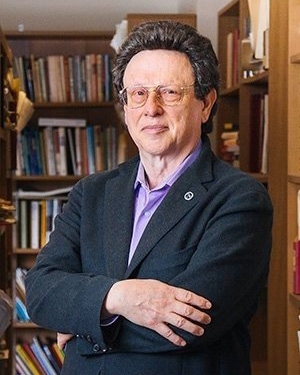
William Potter
Dr. William Potter is Sam Nunn and Richard Lugar Professor of Nonproliferation Studies and Founding Director of the Center for Nonproliferation Studies at the Middlebury Institute of International Studies at Monterey. He is the author, editor, or co-editor of over 20 books, including two volumes on Forecasting Nuclear Proliferation in the 21st Century (Stanford University Press, 2010), The Global Politics of Combating Nuclear Terrorism (Routledge, 2010), Nuclear Politics and the Non-Aligned Movement (Routledge, 2012), Preventing Black-Market Trade in Nuclear Technology (Cambridge University Press, 2018), and Once and Future Partners: The United States, Russia, and Nuclear Non-Proliferation (IISS/Routledge, 2018). He has authored more than 125 articles and book chapters, including in Arms Control Today, Bulletin of Atomic Scientists, Foreign Affairs, Foreign Policy, International Organization, Journal of Conflict Resolution, Problems of Communism, Slavic Review, Survival, and the Washington Quarterly. Dr. Potter has served on numerous committees of the US National Academy of Sciences and for five years was a member of the UN Secretary-General’s Advisory Board on Disarmament Matters. He has participated as a delegate at every NPT Review Conference and Preparatory Committee meeting since 1995. He was elected as a Foreign Member of the Russian Academy of Sciences in 2019.
In English
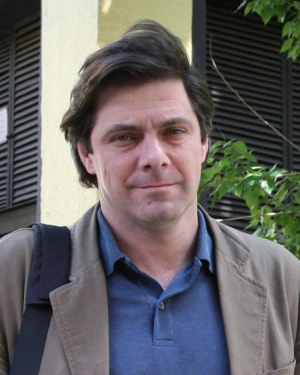
Kirill Rogov
Kirill Rogov is the vice-president of the Liberal Mission Foundation (Moscow), the director of analytics and research programs, and a member of the Council on Foreign and Defense Policy. Originally a specialist in Russian intellectual and cultural history of the 18th and 19th centuries, Mr. Rogov started his career as a journalist in the late 1990s. In the 2000s, he was co-founder and editor-in-chief of the news and opinion portal “Polit.Ru” – one of the first Russian online media. He was a columnist for the leading business daily Vedomosti, and later deputy editor-in-chief at Kommersant Daily, another leading Russian newspaper. In 2007 - 2015 Mr. Rogov had held positions at the Gaidar Institute for Economic Policy, the leading Russian think-tank in economics, and at the Academy for the National Economy and Public Policy. In 2010-2011, he was an academic secretary and a member of the editorial committee of the working group on economic growth that formulated the Government Strategy Until 2020 (Strategy-2020). His recent articles published in Russia and abroad are focused on problems of current political development, public opinion, and the post-Soviet history of Russia. He is a columnist for Vedomosti, Forbes–Russia, Novaya Gazeta, and others.
In Russian
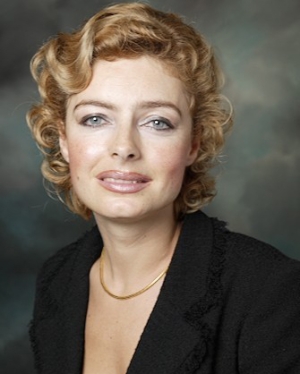
Asya Rudkovskaya
Dr. Asya Rudkovskaya is a Senior Digital Strategy Adviser at the World Bank. Dr. Rudkovskaya advises global business and government leaders on competitiveness and digital transformation strategies. In her role as Senior Digital Strategy Advisor for the World Bank, she is leading engagements with the governments of Russia and the Eurasian Economic Union on helping shape their Digital Transformation Strategies. Earlier, as Managing Director in Cisco’s Emerging Markets theater responsible for driving the company’s public sector business, she advised government leaders on the strategic use of digital technologies to achieve their national development objectives and sustainable national, regional and global competitive advantage. Dr. Rudkovskaya was also Chairman of the Cisco Trusted Advisor Club - a quarterly forum of visionaries and Global Fortune 500 senior executives aimed at exchanging thought leadership and best practice on the critical business issues of the day and the role of ICT in building strategies for future competitiveness. Prior to joining Cisco Dr. Rudkovskaya was Director of Michael Porter’s Harvard Business School Center for Middle East Competitive Strategy. She led operations in Turkey and the Near East, working with governments, the private sector and NGOs on cluster-building, private-public sector partnerships, and developing strategies for national competitiveness.
In English
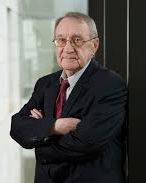
Roald Sagdeev
Roald Zinnurovich Sagdeev is a Russian expert in plasma physics and a former director of the Space Research Institute of the USSR Academy of Sciences. He was a science advisor to the Soviet President Mikhail Gorbachev. He earned his Ph.D. in 1966 from Moscow State University. He previously served for 15 years as director of the Space Research Institute, the Moscow-based center of the Russian space exploration program, where he currently holds the title of director emeritus. Prior to his work with the Soviet space exploration program, he had a distinguished career in nuclear science with international recognition for his work on the behavior of hot plasma and controlled thermonuclear fusion. He is a member of the National Academy of Sciences, the Royal Swedish Academy, the Max Planck Society, and the International Academy of Aeronautics.
In English
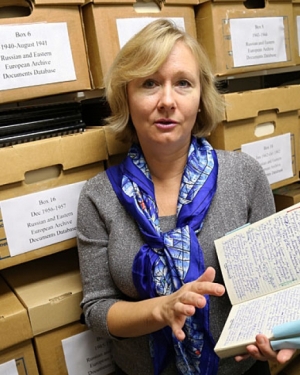
Svetlana Savranskaya
Dr. Svetlana Savranskaya is director of Russia programs (since 2001) at the National Security Archive, George Washington University. She is the author, with Thomas Blanton, of the book The Last Superpower Summits: Gorbachev, Reagan and Bush (Budapest/New York: Central European University Press, 2016), which won Choice magazine’s “Outstanding Academic Title” award in 2017, and the editor of the book by the late Sergo Mikoyan, The Soviet Cuban Missile Crisis: Castro, Mikoyan, Kennedy, Khrushchev and the Missiles of November (Stanford: Stanford University Press/Woodrow Wilson Center Press, 2012). Dr. Savranskaya won the Link-Kuehl Prize in 2011 from the Society for Historians of American Foreign Relations, recognizing the best documentary publication over the previous two years, for her book (with Thomas Blanton and Vladislav Zubok) Masterpieces of History: The Peaceful End of the Cold War in Europe 1989 (Budapest/New York: Central European University Press, 2010). She is author and co-author of multiple publications on the Cuban Missile Crisis, nuclear learning, and the end of the Cold War, and numerous electronic briefing books on these subjects. She also serves as an adjunct professor teaching U.S.-Russian relations and contemporary Russian politics at the American University School of International Service in Washington D.C. (since 2001). She earned her Ph.D. in political science and international affairs in 1998 from Emory University, where she studied with Professors Robert Pastor and Thomas Remington. A “Red Diploma” graduate of the Moscow State University in 1988, she went on to study at the Institute of World Economy and International Relations of the USSR Academy of Sciences in 1989-90, before moving to Emory, where she won a dissertation fellowship from the Institute for the Study of World Politics and worked as a Hewlett Fellow at the Carter Presidential Center in 1993. Her articles and chapters have appeared in the Journal of Strategic Studies, The Cold War International History Project Bulletin, and the Cambridge History of the Cold War, among many other publications. She is currently directing the Archive’s project documenting the Nunn-Lugar Cooperative Threat Reduction Program in the 1990s. Previously, she organized the Archive’s publication projects with the Moscow Helsinki Group and the Memorial Society, a series of seven summer schools for Russian regional university faculty (in cooperation with Kuban State, Voronezh State, and Saratov State), and a series of conferences in Georgia, Armenia, and Azerbaijan focusing on freedom of information laws and access to archives in the former Soviet space.
In English
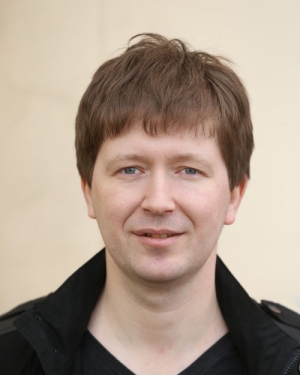
Andrei Soldatov
Andrei Soldatov is a Russian investigative journalist, co-founder, and editor of Agentura.ru, a watchdog of the Russian secret services’ activities. He has been covering security services and terrorism issues since 1999. He is co-author with Irina Borogan of The New Nobility. The Restoration of Russia’s Security State and the Enduring Legacy of the KGB (PublicAffairs, 2010), The Red Web: The Struggle Between Russia’s Digital Dictators and the New Online Revolutionaries (PublicAffairs, 2015) and The Compatriots: The Brutal and Chaotic History of Russia’s Exiles, Émigrés, and Agents Abroad (PublicAffairs, 2019).
In Russian
- Неуловимые доллары: Как Советские и Российские банкиры обходили финансовый контроль США | Untraceable Commodities: How Soviet and Russian Bankers Bypassed U.S. Banking Oversight (July 9)
video | audio - Соотечественники: Как Москва и Вашингтон пытались использовать политическую эмиграцию из России | The Compatriots: The History of the U.S. and Moscow’s Approach to the Russian Political Emigration in the United States (July 10)
video | audio - Кремлевские войны в интернете: Что ждать от рунета после 2020 года | The Kremlin’s Wars on the Internet: What to Expect in the Post-2020 World (July 10)
video | audio
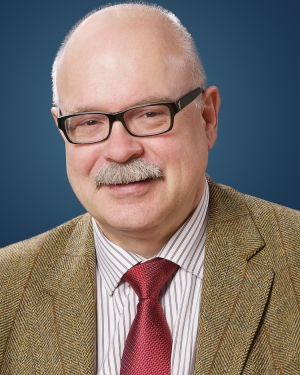
Dmitri Trenin
Dr. Dmitri Trenin, Director of the Carnegie Moscow Center, is chair of its Foreign and Security Policy Program. He has been with the Carnegie Moscow Center since its inception in 1993. He retired from the Russian Army in 1993. From 1993–1997, Trenin held a post as a senior research fellow at the Institute of Europe in Moscow. In 1993, he was a senior research fellow at the NATO Defense College in Rome. He served in the Soviet and Russian armed forces from 1972 to 1993, including experience working as a liaison officer in the external relations branch of the Group of Soviet Forces (stationed in Potsdam) and as a staff member of the delegation to the U.S.-Soviet nuclear arms talks in Geneva from 1985 to 1991. He also taught at the War Studies Department of the Military Institute from 1986 to 1993. Dr. Trenin’s lectures addressed U.S.-Russian relations, Russian foreign policy, and the enduring significance of Russia to the United States.
In Russian
- Российская внешняя политика: Историческое наследие, основные интересы, принципы и направления | Russian Foreign Politics: Historical Heritage, Foundational Interests, Principles and Directions (June 29)
video | audio - Цели, средства и стратегия Российской политики в отношении США и Европы и перспективы Российско-Западных отношений | The Goals, Means, and Strategy of Russian Politics in Relation to the U.S. and Europe and Prospects for Western-Russian Relations (July 1)
video | audio
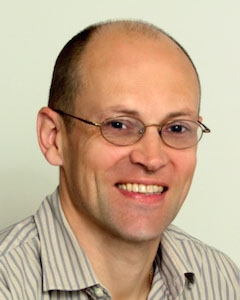
Andrei Tsygankov
Dr. Andrei P. Tsygankov is a Professor at the departments of Political Science and International Relations at San Francisco State University. A Russian native, Tsygankov is a graduate of Moscow State University (Candidate of Sciences, 1991) and the University of Southern California (Ph.D., 2000). He published several books in English and Russian including Anti-Russian Lobby and American Foreign Policy (2009), Russia and the West from Alexander to Putin (2012), and The Strong State in Russia (2014), as well as many journal articles.
In Russian
- Россия и Запад: теория и история | Russia and the West: Theory and History (June 15)
video | audio - Досоветский период | Pre-Soviet Period (June 15)
video | audio - Советский oпыт | The Soviet Years (June 16)
video | audio - Постсоветские Зигзаги | Post-Soviet Developments (June 17)
video | audio - Россия, ревизионизм и глобальный переход | Russia, Revisionism, and the Global Transition (June 29)
video | audio - Российские международники: новый консенсус | Russian Foreign Policy Community: A New Consensus (June 30)
video | audio
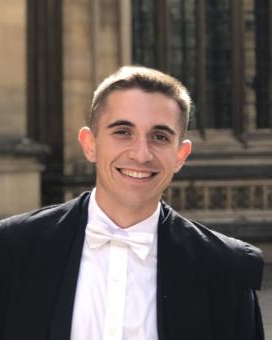
Ivo Walinga
Ivo Walinga is a researcher specializing in the foreign relations of modern China and Russia, including issues of security, trade, and the environment. He holds degrees from the University of Oxford, Sciences Po Paris, and MGIMO. Previously, Ivo worked at the EU Delegation in Moscow and investigated sustainability issues in Taiwan and China for the Dutch Financial Times. He has spent the past two years in Mainland China, as a visiting scholar at the ICARE institute in Wuhan and at Zhejiang University in Hangzhou.
In English
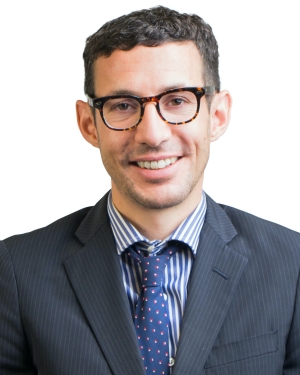
Joshua Yaffa
Joshua Yaffa is a journalist based in Moscow, where he is a contributor to The Economist, among other publications. He also has written on Russia and the former Soviet Union for The New York Times, The Wall Street Journal, Foreign Affairs, The New Republic, Bloomberg Businessweek, and others. He is a Visiting Scholar at the Harriman Institute at Columbia University and previously taught at the Graduate School of Journalism at Columbia University. Joshua Yaffa is currently a Moscow correspondent for The New Yorker. His first book, Between Two Fires: Truth, Ambition, and Compromise in Putin’s Russia, was published in January.
In English
